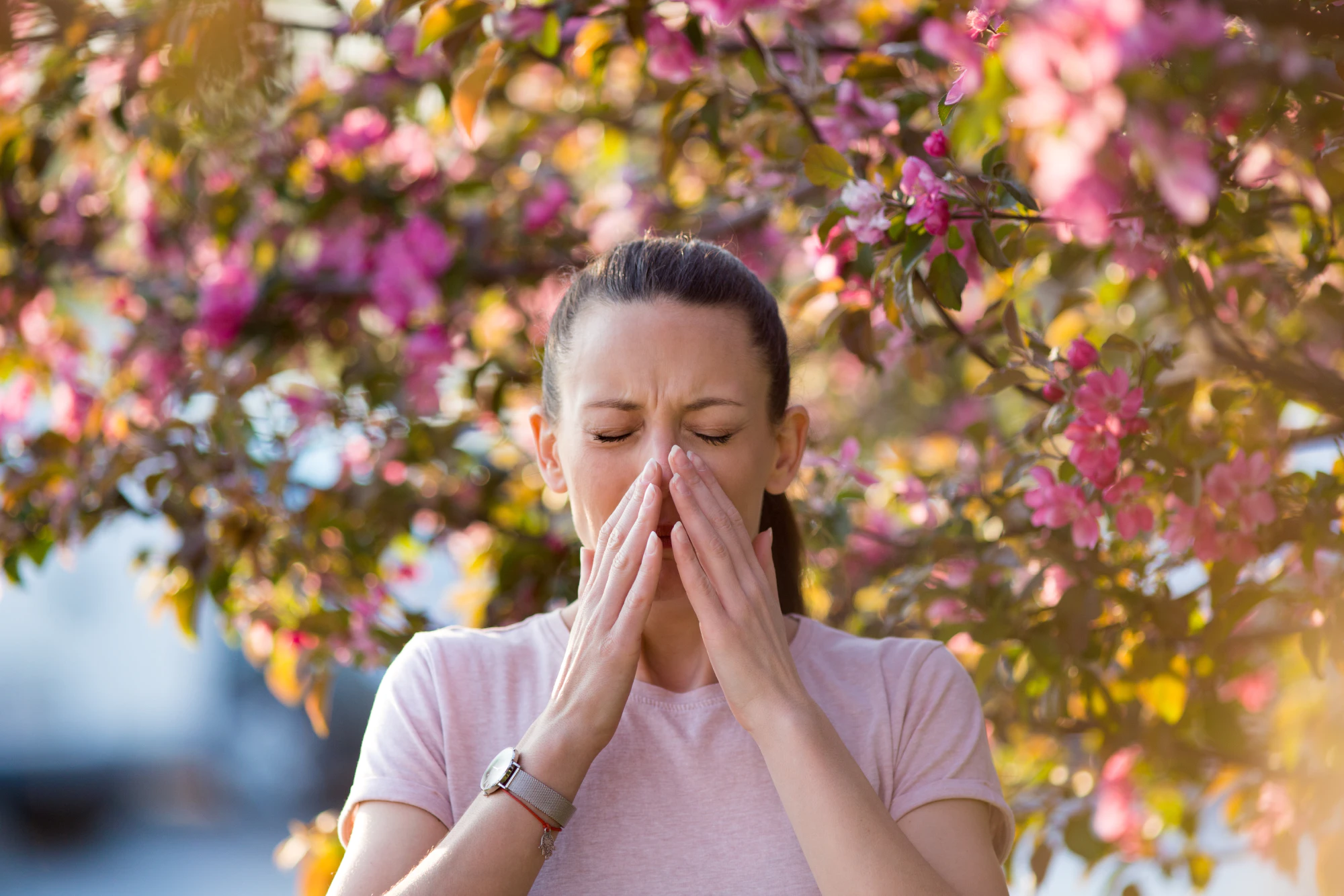Summer Cold or Allergies: Which Do You Have?
Cold & Flu
•
Jul 5, 2022
Reviewed by:

When you’re unsure whether you are dealing with a summer cold or allergies, it can be difficult to know where to look for treatment options. While the common colds and seasonal allergies have many similarities, and it can definitely be difficult to figure out which one is ailing you — however, they each have a few telltale distinctions that can hopefully put you on the path toward relief.
If you find yourself dealing with an illness you cannot seem to place, feel free to head over to a Complete Care facility. We’ll get to the bottom of your symptoms in no time.
Differences between a cold and allergies
First let’s explore some differences between the common cold and allergies. The biggest differences between colds and allergies are the cause, length, a select few symptoms, and the treatment course.
Cause
Summer colds are highly contagious viral infections that cause inflammation in the tissue of your nose and throat. The common cold is spread through airborne cough and sneeze droplets from people who already have it — that’s right, catching a cold from rain is a myth, although it can make you more susceptible to catching a cold. It is possible to build up an immune response to the common cold, and people often do not get it multiple times in a season.
Allergies are caused by allergens, which can be present in plants, animals, and foods, among other things. Allergies are your immune system’s response to any substance that it believes should not be there. Seasonal allergies are often caused by airborne allergens like pollen, cedar, grass, or mold.
Basically, the common cold is caused by other people’s germs, whereas allergies are caused by allergens.
Length
Summer colds often only last a few days, but can sometimes last up to a week. Allergies on the other hand can last weeks on end if not treated properly, and can even persist through an entire allergy season.
If your symptoms are lasting for more than a week, it could be safe to assume that you are dealing with summer allergies.
Onset symptoms
Cold symptoms often have peaks and valleys in intensity. You usually feel a cold coming on, weather the storm, and watch it pass. You’re also more likely to get a summer cold after being around a group of people or after traveling in general (many people experience cold symptoms after flying).
Allergies stay consistent in intensity to the exposure of your allergy. If you’re allergic to pollen and pollen has been high for two weeks, you can expect to be affected for the entire two weeks.
Colds and allergies can both cause sinus infections, which can be serious enough to warrant a trip to the emergency room. You should know when to go to the hospital for a sinus infection, in case your cold or allergies have progressed that far.
Treatments
The summer cold cannot exactly be cured. Cold medicine is intended to ease cold symptoms while your body takes care of the cold itself. Over-the-counter (OTC) nasal decongestants, cough medicine, and expectorants can make you more comfortable for the duration of your cold but are not meant to cure you of the cold.
Mild summer allergies can be treated with reduced exposure to known allergens and over-the-counter antihistamines and nasal sprays. Severe allergies should be discussed with an allergist as there are advanced immunotherapy treatments available to those with frequent and acute discomfort.
The symptoms: summer cold or allergies?
What are the symptoms of a summer cold? How do you know if you have allergies?
Your symptoms themselves might also be able to tell you if you have a summer cold or allergies. Colds and seasonal allergies have many similar symptoms, but some important distinctions.
| Symptom | Is it a Cold? | Is it Allergies? |
| Cough | Often | Sometimes |
| Fatigue | Sometimes | Rarely |
| Itchy, painful eyes | Rarely | Often |
| Sneeze | Often | Often |
| Throat soreness | Often | Rarely |
| Nose running | Often | Often |
| Nose stuffy | Often | Often |
| Fever | Often | Never |
Continue reading: Can allergies make your eyes hurt?
This chart is not absolute, and these symptoms do not just appear in colds and seasonal allergies — you could have a sore throat from smoke inhalation, for instance. If you are concerned about symptoms not going away the best thing to do is contact a healthcare professional, who can put you on the path towards diagnosis and, ultimately, relief.
Whether you have a summer cold or allergies, Complete Care is ready to treat you
If you’re not sure whether you have a summer cold or allergies, and are ready to get a professional’s opinion, come into any of Complete Care’s freestanding emergency rooms that are open 24/7.
We’re available around the clock throughout Texas (Austin, Corpus Christi, San Antonio, Dallas/Fort Worth, Tyler, and Lubbock) and in Colorado Springs, and are ready to take Complete Care of you.
More Helpful Articles by Complete Care:
- The Top 5 Most Common Causes of Summertime Injuries
- When to Go to the ER for a Fever
- How to Get Rid of Chest Pain
- Flu vs. Cold vs. COVID: How to Tell the Difference
- What to Do If Bit by a Poisonous Snake
